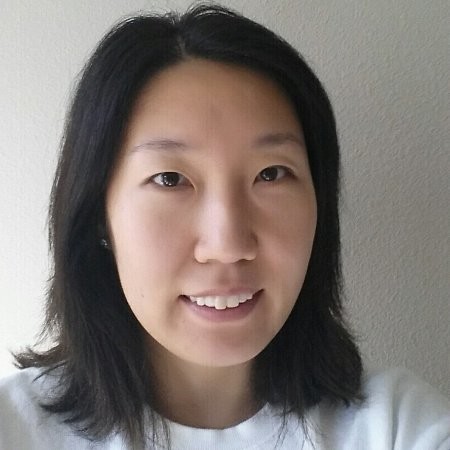Advanced Genetic Testing
Sophisticated expertise in clinical genetics
We offer genetic panels with industry-leading turnaround times. Rare diseases or difficult diagnoses are frequently best understood with genetics. We are careful to include in our panels, difficult genetic elements such as pseudogenes, tandem repeats, and structural variants (including deletions, duplications, inversions, translocations, and insertions).
Human clinical genetics can be quite complex due to the different types of inheritance (e.g., recessive, dominant, X-linked, mitochondrial, partial penetrance), variants and terminology (e.g., indels, copy number variants, single nucleotide variants, polymorphisms, mutations). Frequently, different methods and platforms are required to best assess clinically meaningful conclusions.
We offer clinical genetic consulting services to help clients navigate complex clinical presentations and genetic results.
We have a sophisticated expertise in clinical genetics characterizing germline (i.e., inherited or constitutional) and somatic genetic disorders or infectious disease, using:
- Targeted next-generation sequencing (NGS)
- Whole exome sequencing (WES)
- RNA sequencing
- Sanger sequencing
- Long-read sequencing
- Real-time polymerase chain reaction (RT-PCR)
- Copy number variant (CNV) analysis with RT-PCR
- Multiplex ligation-dependent probe amplification (MLPA)
- Short tandem repeat (STR) analysis
- Pathogen detection using RT-PCR or real-time loop-mediated isothermal amplification (RT-LAMP)
Advanced Genetic Related Tests
ADAMTS13 Gene Sequencing
STAT: < 48 hours (M-F)
NGS
Draw Tube: Purple Top
Congenital Thrombotic Thrombocytopenic Purpura (cTTP) can be rapidly diagnosed with this test. Severe deficiency of ADAMTS13 activity, negative for an inhibitor, represent putative cases of Upshaw-Schulman syndrome; this autosomal recessive inherited form of TTP can be confirmed by gene sequencing.
aHUS Genetic Panel 3.0
STAT: < 48 hours (M-F)
NGS
Draw Tube: Purple Top
The clinical presentation of thrombotic microangiopathy (TMA) has been associated with multiple genetic disease including atypical hemolytic uremic syndrome (aHUS), thrombotic thrombocytopenic purpura (TTP), C3 glomerulopathy (C3G, comprising dense deposit disease and C3 glomerulonephritis), congenital B12 deficiency and others. These are difficult-to-diagnose, very sick patients with distinct treatment depending on the nature of the TMA. Accurate, rapid diagnosis is critical. Additionally, patients with the C5 p.Arg885 polymorphism may respond poorly to the current approved therapy, eculizumab. Note: this is the third time (3.0 name designation) we have updated the gene list to reflect the most current understanding of aHUS/TMA in the scientific literature.
Alport Syndrome Genetic Panel
STAT: < 48 hours (M-F)
NGS
Draw Tube: Purple Top
Genetics can help confirm a diagnosis of Alport syndrome and may be especially helpful when the clinical phenotype is not clear-cut. Genetics can also inform family planning (for example, does an affected male have X-linked or autosomal Alport and is an affected female heterozygous or homozygous?).
Antithrombin III Gene Sequencing
STAT: < 48 hours (M-F)
NGS
Draw Tube: Purple Top
SERPINC1 is the gene encoding antithrombin III (AT3) protein. AT3 deficiency is a common cause of inherited thrombophilia and may be as prevalent as 1:2000. Sequencing may help confirm the diagnosis.
C3 Glomerulopathy (C3G) Genetic Panel
STAT: < 48 hours (M-F)
NGS, RT-PCR
Draw Tube: Purple Top
Genetics can help confirm a C3G diagnosis which can be challenging due to technical issues with immunofluorescence. Furthermore, since there is no disease-specific treatment for C3G, genetics may help treatment decisions; for example, patients with mutations may respond more poorly to mycophenolate mofetil than those with nephritic factors.
CFH Region Deletion/Duplication Analysis...
STAT: < 48 hours (M-F)
MLPA
Draw Tube: Purple Top
Due to the homologous nature of these tandem genes, this complement-regulatory region is more susceptible to deletions and duplications. For example, rare deletions in this region that result in a fusion of the CFH gene to CFHR1 can cause atypical hemolytic uremic syndrome (aHUS). Other more common deletions of either CFHR3-1 or CFHR1-4 can be inherited such that many people are homozygous null for CFHR1; these people are more likely than others to develop anti-CFH antibodies, which can cause aHUS.
CoagGenex Clotting Genetic Panel
STAT: < 48 hours (M-F)
NGS
Draw Tube: Purple Top
The CoagGenex Clotting Genetic Panel is an amplicon-based, next-generation DNA sequencing assay targeting the exons of 28 relevant genes [protein S (PROS1), protein C (PROC), antithrombin III (SERPINC1), factor VIII (F8), factor V (F5), factor II (F2), fibrinogen (FGA), plasminogen (PLG), plasminogen activator inhibitor, type I (formerly called PAI1, now SERPINE1), ADAMTS13, CBS, FGB, FGG, F11, F12, F13A, F13B, F7, F9, HRG, MAST2, PLAT, PROCR, SERPIND1, STAB2, TFPI, THBD, and VWF)]. This panel also detects the CYP2C9 (*2, *3, *5, *6, *8, *11), CYP2C cluster rs12777823, and VKORC1 (*2) variants affecting warfarin sensitivity, which is an anticoagulant frequently used to treat or prevent venous thromboembolism (VTE). Genetic testing may be helpful for confirming diagnosis, estimating risk of recurrence and asymptomatic diagnosis in affected families.
COVID-19 Diagnostic Genetic Test
STAT: < 24 hours (M-F)
RT-LAMP
Draw Tube: Buccal Swab
This test can rapidly diagnose active infection from patients who are symptomatic, presymptomatic, or asymptomatic, facilitating proper quarantine, contact tracing, hospitalization, and treatment. A major obstacle in controlling the (COVID-19) pandemic is that patients are contagious while presymptomatic or asymptomatic.
Dysfibrinogenemia Genetic Panel
STAT: < 48 hours (M-F)
NGS
Draw Tube: Purple Top
Mutations in FGA, FGB, or FGG can cause dysfibrinogenemia or afibrinogenemia. Depending on the effect of the mutation, there may be a bleeding, thrombotic, or asymptomatic phenotype. This test may help confirm the diagnosis.
Factor II (2) Gene Sequencing Assay
STAT: < 48 hours (M-F)
NGS
Draw Tube: Purple Top
The type of mutation correlates with disease severity and likelihood of inhibitor formation. Mutation detection can confirm the diagnosis when the traditional lab workup is muddied by complicating factors like inflammation, stress, infection, hormone replacement therapy, age, acute phase response, menstrual cycle, pregnancy, exercise, ABO blood type, or lupus anticoagulant.
Factor IX (9) Duplication/Deletion Analy...
STAT: < 48 hours (M-F)
MLPA
Draw Tube: Purple Top
Hemophilia B is due to mutations in the Factor IX (9) gene. Knowing the mutation can inform likelihood of inhibitor development, bleeding severity, family planning, and pregnancy and neonatal management. Over 10% of severe hemophilia B cases are due to large deletion or duplication variants which are very difficult to detect via sequencing.
Factor IX (9) Gene Sequencing Assay
STAT: < 48 hours (M-F)
NGS
Draw Tube: Purple Top
The type of mutation correlates with disease severity and likelihood of inhibitor formation. Mutation detection can confirm the diagnosis when the traditional lab workup is muddied by complicating factors like inflammation, stress, infection, hormone replacement therapy, age, acute phase response, menstrual cycle, pregnancy, exercise, ABO blood type, or lupus anticoagulant.
Factor V (5) Gene Sequencing Assay
STAT: < 48 hours (M-F)
NGS
Draw Tube: Purple Top
The type of mutation correlates with disease severity and likelihood of inhibitor formation. Mutation detection can confirm the diagnosis when the traditional lab workup is muddied by complicating factors like inflammation, stress, infection, hormone replacement therapy, age, acute phase response, menstrual cycle, pregnancy, exercise, ABO blood type, or lupus anticoagulant.
Factor V (5) Leiden Gene Mutation
STAT: < 48 hours (M-F)
RT-PCR
Draw Tube: Purple Top
The Factor V Leiden mutation causes resistance to activated protein C and is the most common inherited predisposition to venous thrombosis in Caucasian populations (40 to 50 percent of cases). Heterozygosity for the Factor V Leiden mutation confers an approximately sevenfold increased risk of thrombosis, while homozygosity for the mutation increases thrombosis risk 80-fold. It is present in 60% of thrombotic patients with normal levels of protein S, protein C, antithrombin, and antiphospholipid antibodies. The Factor V Leiden mutation has also been associated with spontaneous abortion and may be linked to recurrent pregnancy loss.
Factor VII (7) Gene Sequencing Assay
STAT: < 48 hours (M-F)
NGS
Draw Tube: Purple Top
The type of mutation correlates with disease severity and likelihood of inhibitor formation. Mutation detection can confirm the diagnosis when the traditional lab workup is muddied by complicating factors like inflammation, stress, infection, hormone replacement therapy, age, acute phase response, menstrual cycle, pregnancy, exercise, ABO blood type, or lupus anticoagulant.
Factor VIII (8) Deletion/Duplication Ana...
STAT: < 48 hours (M-F)
MLPA
Draw Tube: Purple Top
Hemophilia A is due to mutations in the F8 gene. Knowing the mutation can inform likelihood of inhibitor development, bleeding severity, family planning, and pregnancy and neonatal management. Over 5% of severe hemophilia A cases are due to large deletion or duplication variants which are very difficult to detect via sequencing.
Factor VIII (8) Gene Sequencing and Inve...
STAT: < 48 hours (M-F)
NGS, Inversion Assay
Draw Tube: Purple Top
The type of mutation correlates with disease severity and likelihood of inhibitor formation. Mutation detection can confirm the diagnosis when the traditional lab workup is muddied by complicating factors like inflammation, stress, infection, hormone replacement therapy, age, acute phase response, menstrual cycle, pregnancy, exercise, ABO blood type, or lupus anticoagulant. Confirming carrier status can inform family planning decisions.
Factor X (10) Gene Sequencing Assay
STAT: < 48 hours (M-F)
NGS
Draw Tube: Purple Top
The type of mutation correlates with disease severity and likelihood of inhibitor formation. Mutation detection can confirm the diagnosis when the traditional lab workup is muddied by complicating factors like inflammation, stress, infection, hormone replacement therapy, age, acute phase response, menstrual cycle, pregnancy, exercise, ABO blood type, or lupus anticoagulant.
Factor XI (11) Gene Sequencing Assay
STAT: < 48 hours (M-F)
NGS
Draw Tube: Purple Top
The type of mutation correlates with disease severity and likelihood of inhibitor formation. Mutation detection can confirm the diagnosis when the traditional lab workup is muddied by complicating factors like inflammation, stress, infection, hormone replacement therapy, age, acute phase response, menstrual cycle, pregnancy, exercise, ABO blood type, or lupus anticoagulant.
Factor XII (12) Gene Sequencing Assay
STAT: < 48 hours (M-F)
NGS
Draw Tube: Purple Top
The type of mutation correlates with disease severity and likelihood of inhibitor formation. Mutation detection can confirm the diagnosis when the traditional lab workup is muddied by complicating factors like inflammation, stress, infection, hormone replacement therapy, age, acute phase response, menstrual cycle, pregnancy, exercise, ABO blood type, or lupus anticoagulant.


Jamey Kain, Ph.D.
Vice President of Genetic Innovation
Jamey focuses on innovation and continual improvement in clinical testing. He also oversees the MAC Plus study at Machaon, a retrospective analysis of >1000 patients who have undergone genetic testing for the diagnosis of thrombotic microangiopathies such as atypical hemolytic uremic syndrome. This study is a large collaboration with many physicians and hospitals across the country. Jamey joined Machaon in 2013. In the past, he studied how noise in gene expression and neuronal wiring combine with nature and nurture in determining animal behavior, fabricating novel behavioral rigs incorporating machine vision and machine learning. Jamey also studied how subcellular localization of proteases contribute to cell fate decisions in bacteria. He has also worked at Taxa, Inc., a synthetic biology startup.
| BA | University of California, Berkeley |
|---|---|
| MA | Harvard University |
| PhD | Harvard University |
| Post-doctoral Fellow | The Rowland Institute at Harvard |

Jamey Kain, Ph.D.
Jihyun Moon, Ph.D.
Associate Director of Genetic Innovation
Jihyun leads the design and validation of new genetic panels. She also analyzes the NGS data and writes the clinical reports for many of our panels. Jihyun is a subject matter expert on the genetics of bleeding, clotting and platelet disorders. Before joining Machaon in 2018, Jihyun was the Chief Scientific Officer at the synthetic biology startup TAXA, Inc., where she developed a plant metabolic engineering platform. Jihyun has published her studies on the developmental biology of maize from her time in academia.
| BS | Seoul National University |
|---|---|
| MS | Seoul National University |
| PhD | University of California Berkeley |
| Research Scholar | University of California Berkeley |
| Post Doctoral Fellow | University of California Berkeley |

Jihyun Moon, Ph.D.

Gayatri Raghuraman, Ph.D.
Gayatri Raghuraman, Ph.D.
Associate Director of Genetic Operations
Gayatri oversees our clinical sequencing operations, ensuring patient results are delivered back to their physicians with industry-leading turnaround time. She also provides critical support to our Covid-19 testing team. Gayatri has been at Machaon since 2017. Before that, she was a research associate at the University of Chicago and the VA in Palo Alto where she worked on many projects, including the molecular mechanisms underlying cardiovascular disease, the role of neurotransmitters during hypoxia, and how macrophages and dendritic cells respond to infection.
| B.Tech. | Anna University |
|---|---|
| M.Tech. | Anna University |
| Post-doctoral Scholar | University of Michigan, Ann Arbor |

Frances Tran, Ph.D.
Senior Clinical Research Scientist
Frances is the head of our Covid-19 testing team and our infectious disease group. She rapidly built a Covid-19 testing operation at Machaon that is able to complete the vast majority of tests with same-day turnaround time. Her efforts helped many local schools and businesses remain open during the pandemic, including our own. In her previous work at Curative, Inc., Frances was a key player in bringing large-scale Covid-19 testing to Los Angeles. During her academic training, Frances published on vesicle-mediated horizontal gene transfer in bacteria.
| BA | University of California, San Diego |
|---|---|
| PhD | University of Wisconsin |
| Post-doctoral Fellow | University of Southern California |
Violet Votin, Ph.D.
Scientific Liaison, Senior Clinical Research Scientist
Violet is our subject matter expert for hemophagocytic lymphohistiocytosis (HLH), Alport syndrome and inherited thrombocytopenia. Prior to joining Machaon in 2016, Violet worked in both industry and government labs (USDA, Bio-Rad, Clontech, Xoma, Collabrx) developing dozens of new research tools, including flow cytometry assays for human immune cells, new antibodies to diagnose botulism in the field and new platforms to discover novel therapeutic antibodies.
| BS | St. John's University |
|---|---|
| PhD | Stanford University School of Medicine |
| Post-doctoral Fellow | University of California, Berkeley |

Violet Votin, Ph.D.

Jooeun Lim Conley, Ph.D.
Director of Bioinformatics
Jooeun is a variant analysis and interpretation guru with additional subject matter expertise in atypical hemolytic uremic syndrome (aHUS), hemophilia, Von Willebrand Disease and platelet function disorders. Jooeun joined Machaon in 2015. In the past, she has also researched the calcification of arteries and bone at UC San Diego and spore formation in Bacillus subtilis at Harvard.
| BA | University of California, San Diego |
|---|---|
| MA | Harvard University |
| PhD | Harvard University |
James Anderson-Furgeson, Ph.D.
Associate Director of R&D
James is our R&D specialist, evaluating the latest methods and technologies (e.g., long-read sequencing) to identify those which bring unique capabilities to the clinical laboratory space. Some of the projects he has spearheaded include our pharmacogenomics, multiplex ligation-dependent probe amplification (MLPA), and inversion-detection PCR assays.
Prior to joining Machaon in 2017, James worked on creating a new bioengineering platform using moss at Taxa, Inc., a synthetic biology startup. He studied polar growth and cell division in Agrobacterium tumefaciens for his thesis work.
| BA | Pomona College |
|---|---|
| PhD | University of California, Berkeley |

James Anderson-Furgeson, Ph.D.